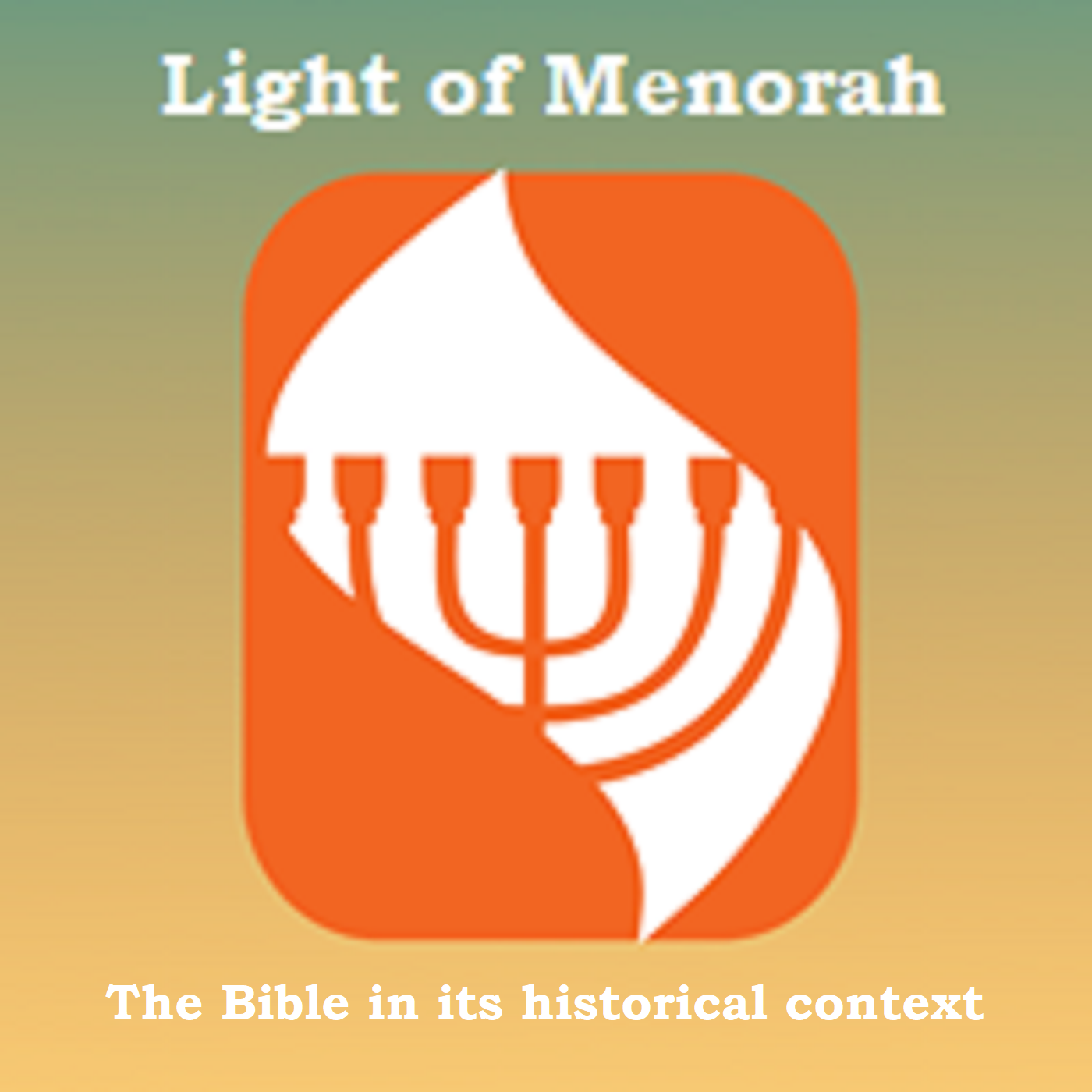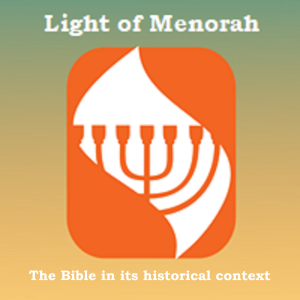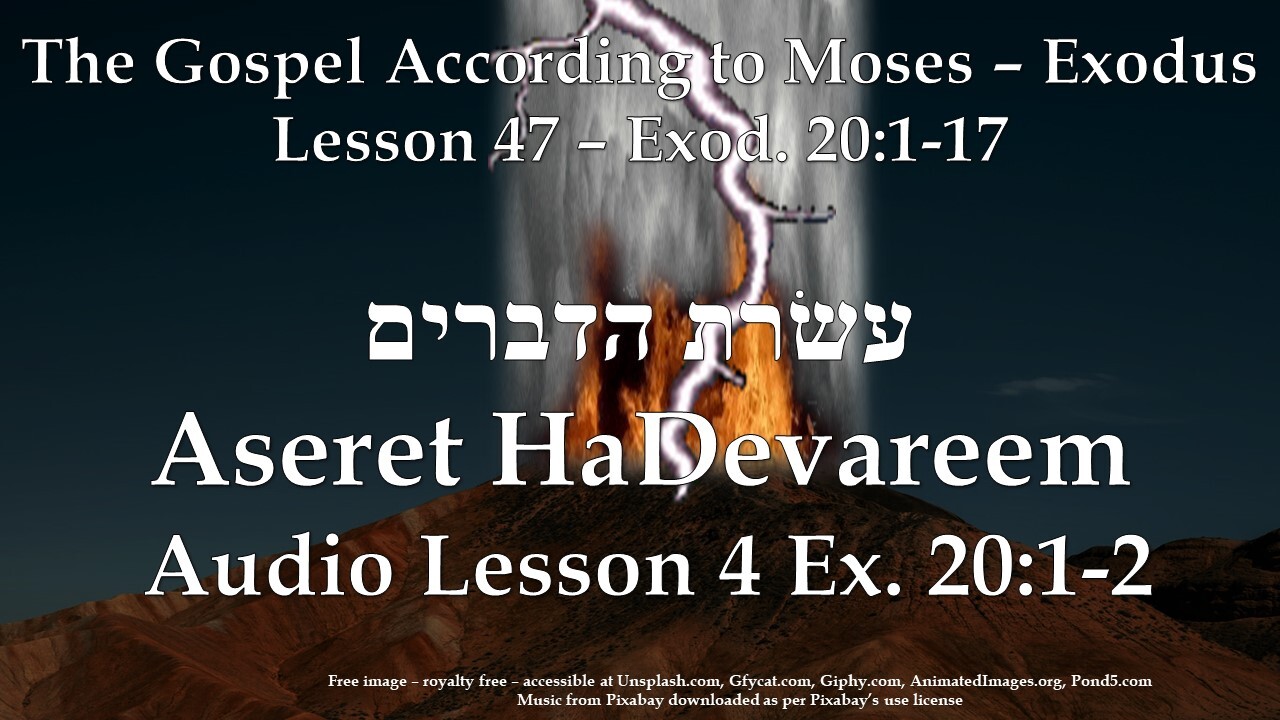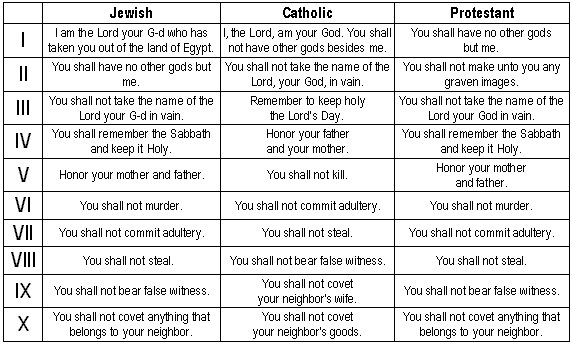
29.3K
Downloads
386
Episodes
The study of the Bible in its historical context - with a focus on the archaeology, history, geography, customs , culture, and even the languages of the ancient Middle East. WE ask what did they understand THEN - the original intent of the Lord - so that we can expand and enrich our understanding NOW and thus become true disciples of Adonai Yeshua as in John 8:31-32.
Episodes

Thursday Jul 06, 2023
Exodus - 47 Lesson 4 - Exod. 20:1-2 - 1ST COMMANDMENT IN CONTEXT
Thursday Jul 06, 2023
Thursday Jul 06, 2023

After the three introductory videos we now begin the study of Exod. 20:1-17 – the exact words of the Lord or as is known in the original Hebrew, עשׂרת הדברים Aseret HaDevareem, the Ten Words or better is the Ten Statements. We found in the introductory videos in Lesson 1 Part 1 and Part 2 there is no such thing as Ten Commandments in the original Hebrew. It was a mistranslation of the church in the late 1500’s.
In Biblical Hebrew, the Ten Commandments, called עשרת הדיברות (transliterated aseret ha-dibrot), are mentioned at Exodus 34:28, Deuteronomy 4:13 and Deuteronomy 10:4. In all sources, the terms are translatable as "the ten words", "the ten sayings", or "the ten matters".
In the Septuagint (or LXX), the "ten words" was translated as "Decalogue", which is derived from Greek δεκάλογος, dekalogos, the latter meaning and referring to the Greek translation (in accusative) δέκα λόγους, deka logous. This term is also sometimes used in English, in addition to Ten Commandments. The Tyndale and Coverdale English biblical translations used "nine verses". The Geneva Bible used "ten commandments", which was followed by the Bishops' Bible and the Authorized Version (the "King James" version) as "ten commandments". Most major English versions use the word "commandments".
(Taken from Wikipedia)
But the idea of Ten Commandments stuck and now we have at least three official versions; the Jewish version, the Catholic and Protestant. All three are different and are subject to the view of the translator and NOT the actual words of the Bible. Shown below are the three versions.

(From Hebrew4Christians.com)
In these lessons we will study עשׂרת הדברים Aseret HaDevareem with the understanding that the Ten Commandments are embedded in the Ten Statements. Our goal is to study the Ten Commandments in their textual context; study the commandments in the Aseret HaDevareem. So, in this lesson we consider Exod. 2:1-2 or …
Then God spoke all these words, saying, “I am the LORD your God, who brought you out of the land of Egypt, out of the house of slavery.” (Exo 20:1-2)
The Catholic and Protestant versions do not have the phrase “who brought you out of the land of Egypt.” Why? Why did they leave God’s words out? So as we study verses 1-2 we will see that if you are a Catholic or if you are a Protestant or some type of non-Catholic, the missing phrase is critical. We can not study whatever version of the Ten Commandments and not understand how this relates to us as Gentile believers in the 21st century. This also goes for the phrase “out of the house of slavery.” Once again this is left out of the Christian list. By doing this we miss what God might be probably to teach His chosen one then and us, us who have been grafted in to the olve tree of Israel. We must study עשׂרת הדברים Aseret HaDevareem and thus to understand the Ten Commandments in their context.
Rev. Ferret - who is this guy? What's his background? Why should I listen to him? Check his background at this link -
https://www.dropbox.com/s/ortnret3oxcicu4/BackgrndTeacher%20mar%2025%202020.pdf?dl=0

No comments yet. Be the first to say something!